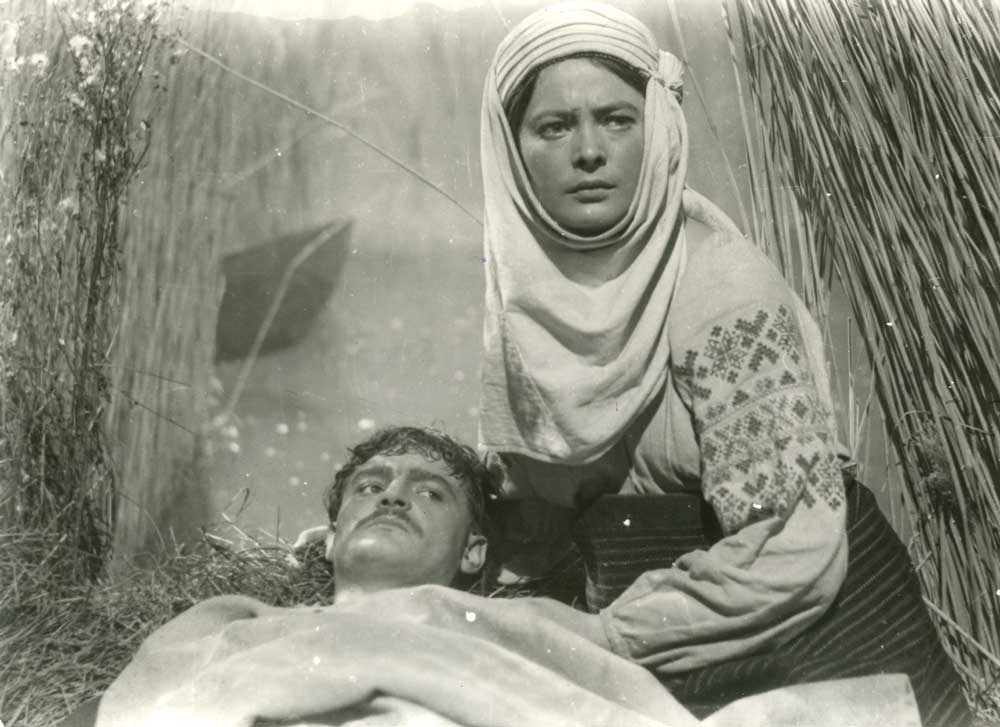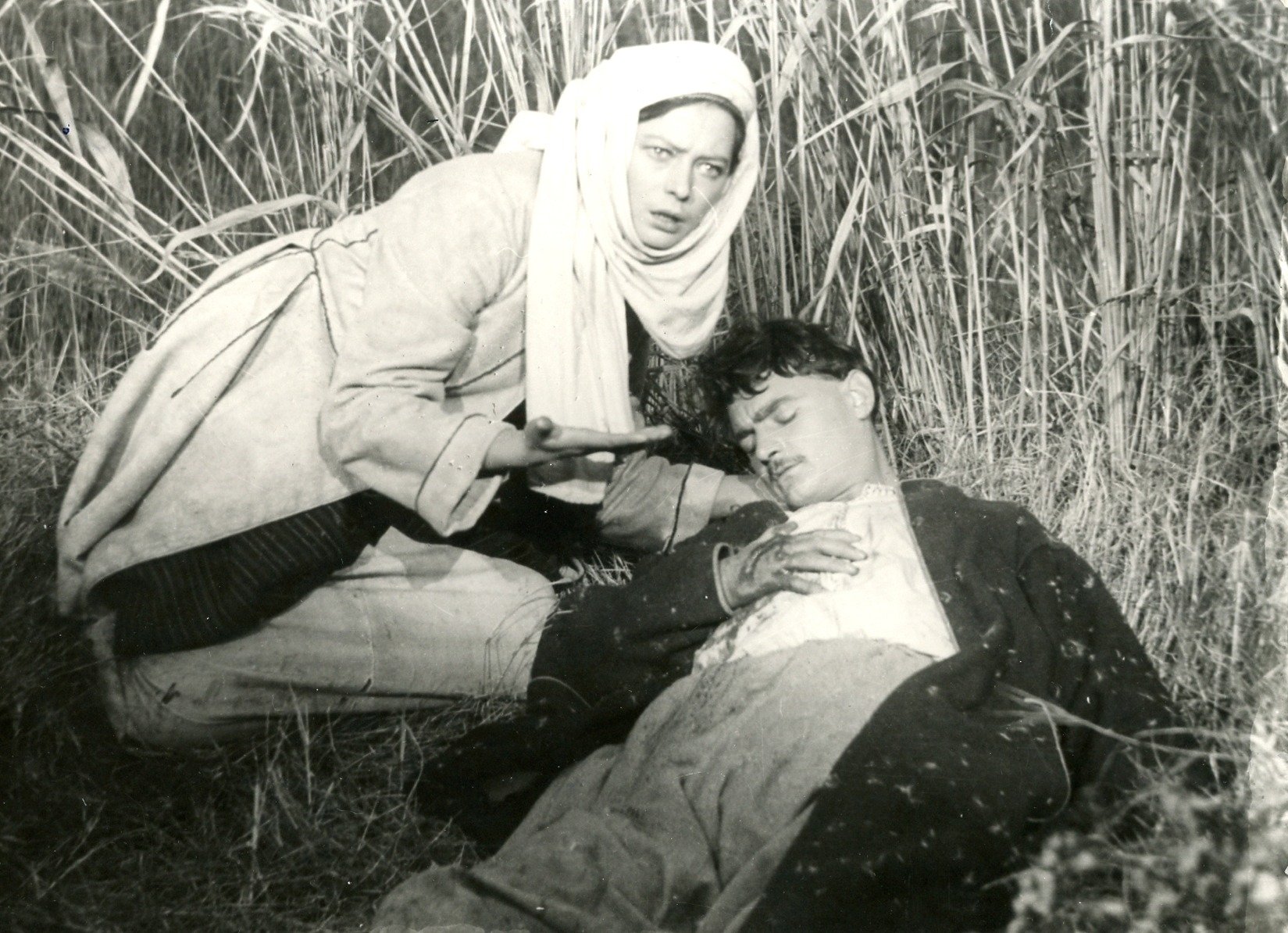
At Great Cost / The Horse That Cried / Dorohoiu tsinoiu
1957
Ukrainian SSR
Oleksandr Dovzhenko Film Studio
98 min
Mark Donskoi
Irina Donskaia
Mykola Topchii
Vera Donskaia, Yurii Dedovich, Ivan Tverdokhlib, Olha Petrova, Serhii Shyshkov, Mariia Skvortsova, Pavel Shpringfeld, Stepan Shkurat, Palladii Bilokon, Oleksandr Romanenko, Fedir Ishchenko, Konstantin Nemoliaev, Volodymyr Vasyliev, Ivan Markevych, Lolia Hryhorash, Dania Volosheniuk, Mykyta Ilchenko, Mykola Sochevanov, Kostiantyn Stepankov
Adaptation of the eponymous novella by Mykhailo Kotsiubynskyi. The 1830s. The local beauty Solomiia is married off to a man she doesn’t love, while her beloved Ostap is conscripted into the army. Heartbroken, Ostap flees across the Danube. Solomiia runs away in the middle of her wedding to go after Ostap, leaving her husband behind. This marks the beginning of their perilous journey, filled with many dangers. During their crossing of the Danube, Ostap is gravely wounded by a border guard’s bullet. Gypsies come to their aid, taking the injured Ostap and Solomiia with them. However, these events are just the beginning of their struggle for happiness and freedom.
After the release of the film Alitet Leaves for the Hills (1949), directed by Mark Donskoi, the Odesa native faced obstacles due to being labeled as “apolitical” and “ideologically shortsighted.” As a form of punishment, he was transferred from Moscow to the Oleksandr Dovzhenko Film Studio in Kyiv. It was there, working in a somewhat hostile atmosphere (there are numerous accounts of how poorly the director was received in Kyiv), that Donskoi directed the film At Great Cost. This film, in many ways, foreshadowed Paradzhanov’s Shadows of Forgotten Ancestors, which was made eight years later based on another novella by Mykhailo Kotsiubynskyi.
Similar to Shadows of Forgotten Ancestors, At Great Cost also tells a tragic love story, features defined folk motifs, vibrant colors, and, most importantly, the same cinematic language that would become an essential component of Ukrainian poetic cinema in the future. Yet Donskoi made his film a bit too early. It was released at a pivotal moment when discussing national cinema within the USSR was still challenging, and a few years remained until the so-called “Thaw” period in cinema.
Nevertheless, this did not prevent At Great Cost from achieving international success. A year after its release in the USSR, the British Academy of Film and Television Arts named it the Best Foreign Film screened in England in 1958. Donskoi returned to Moscow following the film’s success.
